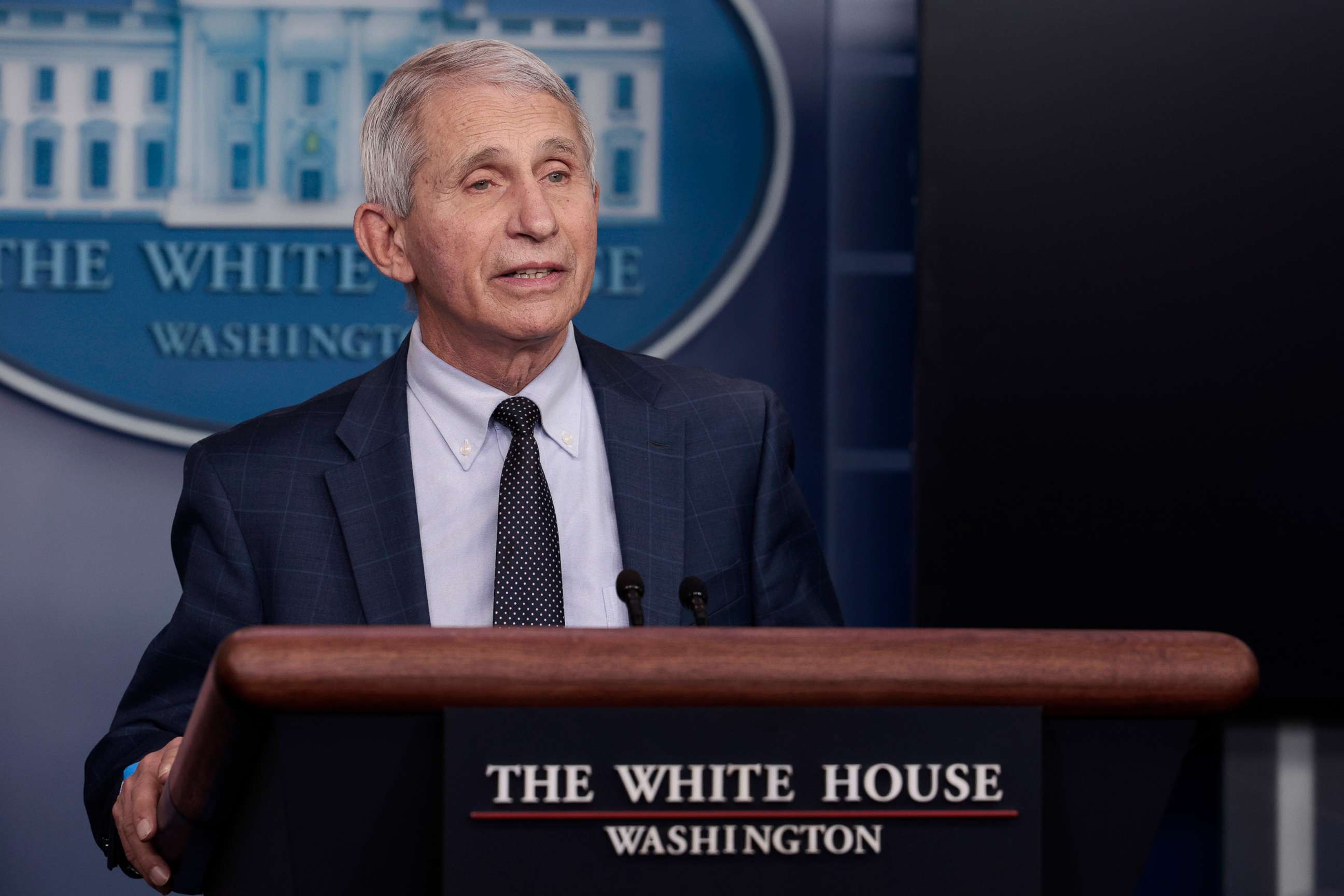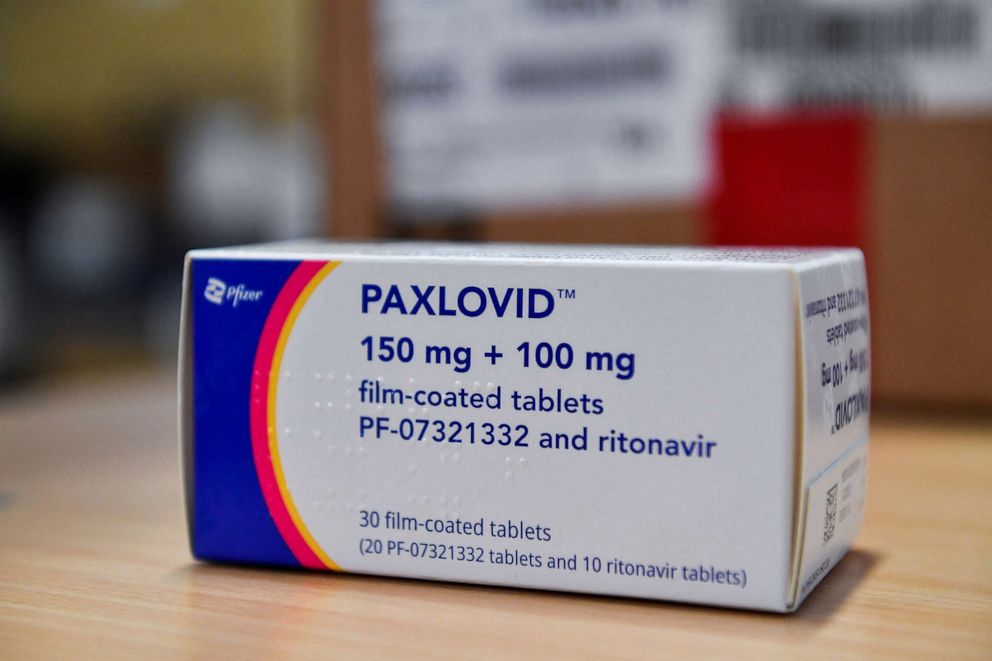Fauci says he's taking 2nd course of Paxlovid after experiencing rebound with the antiviral treatment
After testing positive for COVID-19 earlier this month, Dr. Anthony Fauci said Tuesday that he has joined a growing group of people experiencing a Paxlovid rebound, following treatment with Pfizer's antiviral.
Fauci, 81, said that when he first tested positive two weeks ago, he had very minimal symptoms. However, when he began to feel worse, "given [his] age," he was prescribed Paxlovid.
Other than fatigue and a bit of congestion, Fauci reported that he felt "really quite well," and after his five-day course of Paxlovid, he tested negative with a rapid test.
However, after testing negative for three consecutive days, Fauci said he decided to take one more test out of precaution and subsequently found himself positive again on the fourth day.
"It was sort of what people are referring to as a Paxlovid rebound," Fauci said during a remote interview with the Foreign Policy Global Health Forum on Tuesday.

Over the course of the next day, he began to feel "really poorly," and "much worse than in the first go around," he added.
Paxlovid is authorized in the U.S. for people with mild-to-moderate symptoms of COVID-19, who are at significant risk of progressing to severe illness.
Last month, the Centers for Disease Control and Prevention asked doctors to be on the lookout for the seemingly rare, but increasingly reported phenomenon.
"Paxlovid continues to be recommended for early-stage treatment of mild to moderate COVID-19 among persons at high risk for progression to severe disease," the CDC wrote in a health alert in May.
The rebounding phenomenon, which is described as a recurrence of COVID-19 symptoms or the development of a new positive viral test after having tested negative, has been found to occur between two and eight days after initial recovery. A brief return of COVID-19 symptoms may be part of the "natural history" of the virus, officials wrote, and may occur in some people, regardless of treatment with Paxlovid or vaccination status.
Just last week, Fauci told reporters during a White House COVID-19 briefing that he was feeling well after testing positive and taking his first course of Paxlovid.
"All is well with Fauci and thank you for asking," Fauci said. "I'm vaccinated. I'm doubly boosted. And I believe if that were not the case, I very likely would not be talking to you, looking as well as I look, I think, right now."
However, after his COVID-19 recurrence, Fauci was prescribed another course of Paxlovid, he said. As of Tuesday, he is on his fourth day of a five-day course.
"I am on my fourth day of a five-day course of my second course of Paxlovid. And fortunately, I feel reasonably good. I mean, I'm not complete[ly] without symptoms, but I certainly don't feel acutely ill," Fauci said.
Health officials have reported that while information is still limited, available data suggests that most people who experience the rebound are not likely to suffer from severe forms of disease.

At this time, CDC states that there is currently no evidence that an additional treatment of Paxlovid, is needed, following a rebound.
The Food and Drug Administration also says that “there is no evidence of benefit at this time for a longer course of treatment … or repeating a treatment course of Paxlovid in patients with recurrent COVID-19 symptoms following completion of a treatment course.”
The CDC currently recommends that doctors advise their patients with COVID-19 rebound to follow CDC’s guidance on isolation and take additional precautions to prevent transmission.
Patients should re-isolate for at least five days, and per agency guidance, can end their re-isolation period after five full days, if fever has dissipated for 24 hours and symptoms are improving, the CDC says. Physicians are also recommended to tell their patients to wear a mask for a total of 10 days after rebound symptoms started, the agency said.
"Regardless of whether the patient has been treated with an antiviral agent, risk of transmission during COVID-19 rebound can be managed by following CDC’s guidance on isolation, including taking other precautions such as masking," the agency wrote in May.
Earlier this month, Pfizer also reported new clinical trial data that showed that Paxlovid did not significantly reduce the risk of going to the hospital or dying in people with standard risk of developing severe illness. However, the company said the treatment still works well in high-risk individuals.





